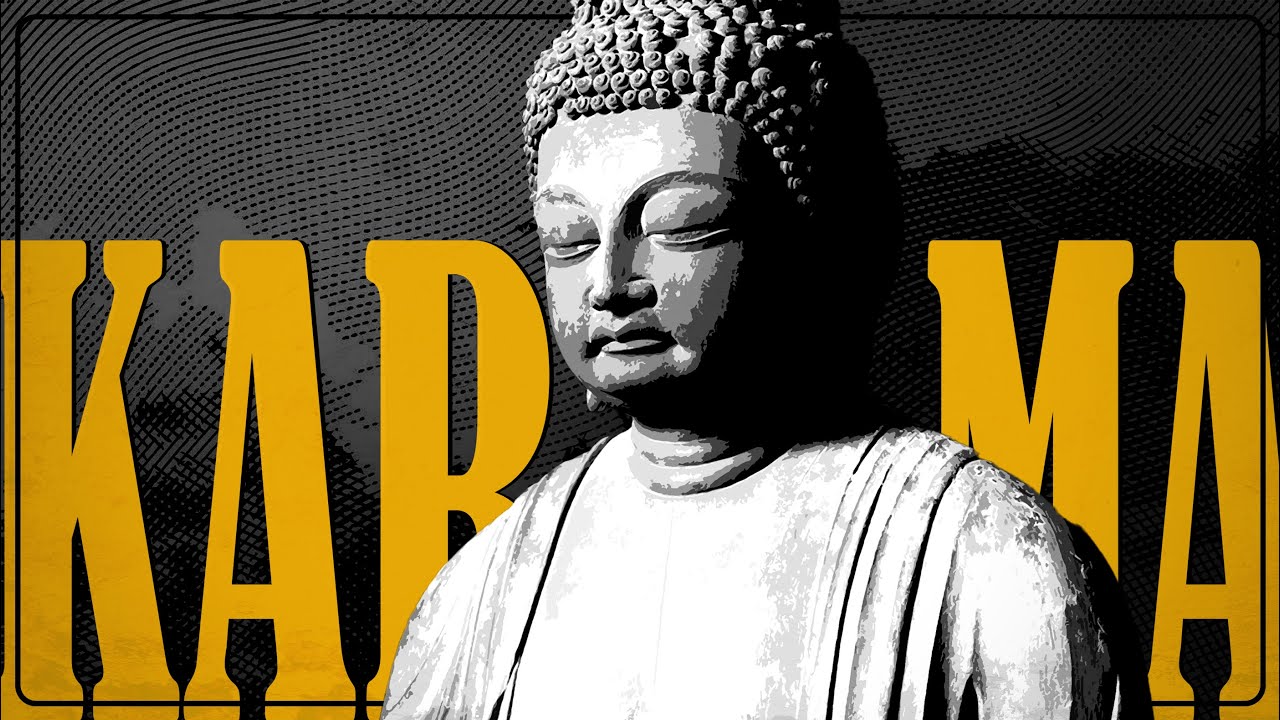Rangkuman Kamma & Kelahiran Kembali UIB
Summary
TLDRThis video explains the concept of Karma and rebirth in Buddhism, based on teachings by the late Bapak Corneli and Bhikkhu Utamo Mahatera. Karma is the result of past actions that influence the present and future, and it is divided into categories such as heavy, habitual, death-related, and reserve Karma. Positive Karma arises from actions rooted in generosity and wisdom, while negative Karma stems from greed and hatred. Rebirth is a continuous cycle shaped by Karma, and insight into past lives can be achieved through meditation or hypnosis. The teachings emphasize ethical living and mindfulness.
Takeaways
- 😀 Karma refers to the actions we take (thoughts, words, deeds) that impact our present and future experiences.
- 😀 Karma can be classified based on the intent behind the action, and actions without intent are not considered Karma.
- 😀 Positive Karma arises from good actions such as generosity, wisdom, and non-hatred, while negative Karma comes from greed, hatred, and delusion.
- 😀 Karma can manifest immediately, later in life, or in future lifetimes depending on the nature of the action.
- 😀 There are different types of Karma: heavy (extreme negative actions), habitual (ingrained negative tendencies), and reserve Karma (general actions not yet classified).
- 😀 Heavy negative Karma includes extreme acts like murder or intentional harm towards loved ones.
- 😀 Habitual Karma is the accumulation of repeated negative behaviors over time.
- 😀 Reserve Karma consists of actions that might not fall under heavy or habitual but still have consequences in future lives.
- 😀 Rebirth in Buddhism is viewed as the continuation of life across 31 different realms, influenced by the Karma accumulated in previous lives.
- 😀 Meditation and hypnosis are methods used to gain insights into past lives and the impact of Karma, though meditation is more effective for those experienced in it.
- 😀 Understanding and reflecting on Karma and rebirth can help guide one's actions in the present to create a better future life.
Q & A
What is Karma, as explained in the script?
-Karma is the result of actions, thoughts, or words that we have performed in the past. It influences both our present and future, and can be either good or bad depending on the intention behind the actions.
How is Karma categorized in the script?
-Karma is categorized into four types: heavy or negative Karma (akusala), habitual Karma, Karma resulting from a near-death memory, and residual Karma from past or current lives that doesn't fit the previous categories.
What is heavy or negative Karma, and can you provide an example?
-Heavy or negative Karma refers to severe actions with malicious intent, such as killing one's parents or committing harmful acts towards others. These actions lead to significant negative consequences.
What is habitual Karma, and how does it differ from other types of Karma?
-Habitual Karma consists of repeated actions or behaviors that one continues over time. Unlike other types of Karma, habitual Karma is tied to consistent patterns of behavior, like causing harm regularly or living a life of greed.
What does the script say about the timing of when Karma manifests?
-Karma may manifest either immediately or in the future, depending on the individual's actions. Some people experience the effects of their good or bad Karma directly, while others may live for a long time before facing the consequences of their past actions.
What causes the emergence of good Karma?
-Good Karma arises from actions that are free from greed (loba), hatred (dosa), and delusion (moha), and are motivated by wisdom and kindness.
What are the causes of bad Karma as outlined in the script?
-Bad Karma is caused by actions driven by greed, hatred, and delusion. These actions harm others and lead to negative outcomes for the person who performs them.
How does the script explain the concept of rebirth or reincarnation?
-In Buddhist teachings, rebirth is the idea that life is not limited to just one existence. A being's Karma from past lives determines the nature of their next life. This cycle continues across different realms of existence based on one's actions and Karma.
How can one know their past lives, according to the script?
-The script mentions two main ways to know about one's past lives: through meditation, which allows one to access memories of past existences, and through hypnosis, which can also help reveal previous lives, although meditation practitioners may find it harder to be hypnotized.
What role does meditation play in understanding Karma and rebirth?
-Meditation provides individuals with the opportunity to experience insights into their past lives and the Karma they have accumulated. It is a key tool for those who seek to understand the continuity of life beyond the current existence.
Outlines

此内容仅限付费用户访问。 请升级后访问。
立即升级Mindmap

此内容仅限付费用户访问。 请升级后访问。
立即升级Keywords

此内容仅限付费用户访问。 请升级后访问。
立即升级Highlights

此内容仅限付费用户访问。 请升级后访问。
立即升级Transcripts

此内容仅限付费用户访问。 请升级后访问。
立即升级浏览更多相关视频
5.0 / 5 (0 votes)






